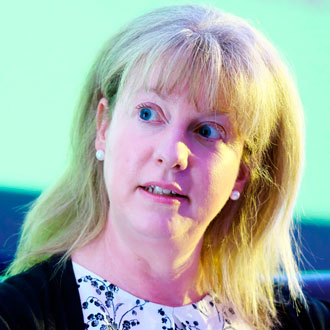£20m GP package to go towards parental leave and occupational health

Practices in Scotland will be given extra funding worth £20m this year, including £2m going into an occupational health service and parental leave payments, health minister Shona Robison has announced today.
Ms Robison told delegates at the Scottish LMCs Conference in Glasgow today that practices will be given £1,686 a week for 26 weeks when for GPs taking maternity or paternity leave, and there would be extra funding for an occupational health service.
The Government will also increase practice funding by 2.5% for next year, which will include a 1% pay increase plus 1.5% for expenses.
The money would also provide oxygen cylinders in every practice, while £2m would be provided for better technology in practices, which would be spent on items such as tablets, rather than the IT system as a while.
A vast chunk of the funding – £5m – would be used to fund a ’quality lead’ in every practice to spend a session every month on leadership skills.
It comes after Scottish GPC chair Dr Alan McDevitt had warned earlier in the day that the current funding proposals for the new contract were inadequate.
The health minister said: ‘As a significant step into the future, I’m today committing £20m in additional investment directly into general practice because I recognise the need to provide more immediate support in preparation for your journey.
’I believe we can work together to build a bright future for general practice and above all for the patients and people of Scotland.’
She said she has asked Government officials to work with health boards and GPs to improve occuptional health services.
On paternity, maternity and adoption leave, she said: ‘There will be a new rate for backfill at £1,686 a week for 26 weeks maximum and I will remove discretionary arrangements.’
Ms Robison also announced to loud cheers that each practice would receive oxygen cylinders for emergency care.
The overall additional funding for the contract next year is £11m, which includes a 1% pay increase, which is worth £3.13m, plus a 1.5% increase for expenses.
There is another £2.6m to fund the cost of population growth.
She has also promised to get together with the GPC to hammer out options to reduce the workload, and there would be a report making recommendations for the next government.
Scottish GMC chair Dr Alan McDevitt last week said that funding under the new contract was ‘inadequte’.
He told journalists at an LMC press conference: ‘The £20 million is just relating to what we are doing now and is in the normal range of what we would expect for an increase in GMS funding. But as a longer term fix I don’t think she or I see that.’
Fife LMC Dr Gerald Burnett said that the £20 million was not enough to help GPs in the longer term.
He asked Ms Robison: ‘Can you commit to providing £20 a patient more per year. We want to provide high quality care but we need extra to continue to offer that.’
One GP told Ms Robison that funding and recruitment problems were so acute that one practice in Angus had no doctor for one day a month. She added: ‘Your ideas are welcome but there are lots of other problems in general practice that need to be addressed now.’
Dr Miles Mack, chair of RCGP Scotland, said: ‘This looks like promising news for hard working GPs and patients across Scotland. It is a small but hopefully significant step in the right direction.
‘We are pleased to see an emphasis on the quality of patient care. Similarly, the £2 million for IT infrastructure is desperately needed. The development of an occupational health service for primary care staff will also be warmly welcomed, such is the pressure those at the front line have been facing for so long.
‘Members across Scotland can perhaps see the beginnings of some positive action from Scottish Government responding to our manifesto and Put patients first campaign for funding for general practice.’
Pulse October survey
Take our July 2025 survey to potentially win £1.000 worth of tokens











